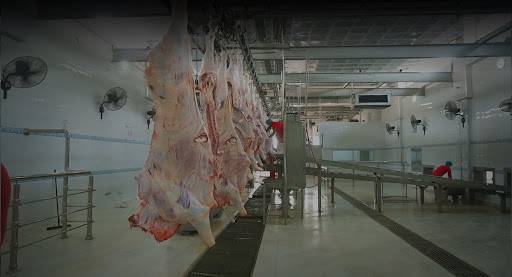Australia, known for its vast landscapes and rich agricultural heritage, is a powerhouse in the global beef industry. With a combination of extensive grazing lands, modern farming practices, and a commitment to sustainability, the country produces some of the world’s finest beef. In this article, we explore Australia’s top 10 beef producers, showcasing their contributions to the nation’s agricultural sector and their role in supplying premium-quality beef to markets worldwide.
Unveiling Australia’s Top 10 Beef Producers: Champions of Quality and Sustainability
1. Australian Agricultural Company (AACo) Established in 1824, AACo is Australia’s oldest and largest beef producer. With extensive cattle stations spanning Queensland, Northern Territory, and Western Australia, AACo is known for its premium Wagyu and Angus beef. The company’s commitment to sustainable land management and animal welfare has earned it recognition as a leader in the industry.
2. Teys Australia Teys Australia is one of the country’s largest beef processing companies, operating state-of-the-art facilities in Queensland, New South Wales, and South Australia. Specializing in grass-fed and grain-fed beef, Teys Australia supplies premium cuts to domestic and international markets. The company’s focus on quality, innovation, and sustainability ensures the integrity of its products.
3. Stanbroke Stanbroke, a division of the Australian Family Investment Company (AFIC), is a leading beef producer with properties in Queensland. Specializing in premium grass-fed beef, Stanbroke is renowned for its commitment to animal welfare and environmental stewardship. The company’s vertically integrated operations ensure full control over the production process, from pasture to plate.
4. Australian Country Choice (ACC) Australian Country Choice (ACC) is a family-owned company with a long history of excellence in beef production. Operating cattle stations and processing facilities in Queensland, ACC supplies high-quality beef products to domestic and international markets. The company’s focus on sustainability, innovation, and customer satisfaction sets it apart in the competitive market.
5. Bindaree Beef Bindaree Beef is one of Australia’s largest meat processing companies, with operations in New South Wales and Queensland. Specializing in grain-fed and grass-fed beef, Bindaree Beef supplies premium cuts to retail and foodservice sectors. The company’s commitment to quality control and food safety ensures the integrity of its products, making it a trusted name in the industry.
6. Kilcoy Global Foods Kilcoy Global Foods is a leading beef processor based in Queensland, with a focus on premium-quality beef products for domestic and international markets. The company’s state-of-the-art processing facilities and stringent quality control measures ensure the integrity of its products. Kilcoy Global Foods’ commitment to sustainability and ethical sourcing practices resonates with consumers seeking responsibly produced meat products.
7. Mort & Co. Mort & Co. is a family-owned company with a long-standing tradition of excellence in beef production. Operating feedlots and processing facilities in Queensland, Mort & Co. specializes in grain-fed beef for domestic and international markets. The company’s commitment to animal welfare, environmental sustainability, and product innovation sets it apart in the industry.
8. NH Foods Australia NH Foods Australia, a subsidiary of NH Foods Ltd. based in Japan, is a major player in the Australian beef industry. With operations in Queensland and New South Wales, NH Foods Australia produces premium-quality beef products for domestic and international markets. The company’s focus on quality assurance, food safety, and customer satisfaction has earned it recognition as a trusted beef producer.
9. JBS Australia JBS Australia, part of the global JBS Group, is one of the largest meat processing companies in Australia. With processing facilities in Queensland, New South Wales, and Victoria, JBS Australia supplies a wide range of beef products to domestic and international markets. The company’s commitment to efficiency, sustainability, and innovation drives its success in the industry.
10. Australian Meat Group (AMG) Australian Meat Group (AMG) is a leading beef processing company with operations in Queensland and New South Wales. Specializing in grass-fed and grain-fed beef, AMG supplies premium cuts to retail and foodservice sectors. The company’s focus on quality, safety, and customer satisfaction ensures the integrity of its products, making it a preferred supplier in the industry.
In conclusion, Australia’s top 10 beef producers represent a diverse array of companies dedicated to excellence in beef production. From traditional family-owned businesses to multinational corporations, these producers play a vital role in shaping the country’s agricultural landscape and supplying premium-quality beef to markets worldwide. As consumer demand for high-quality meat continues to grow, these producers remain committed to delivering products that meet the highest standards of quality, sustainability, and animal welfare.
Related: World’s Top 10 Largest Beef Producing Companies
